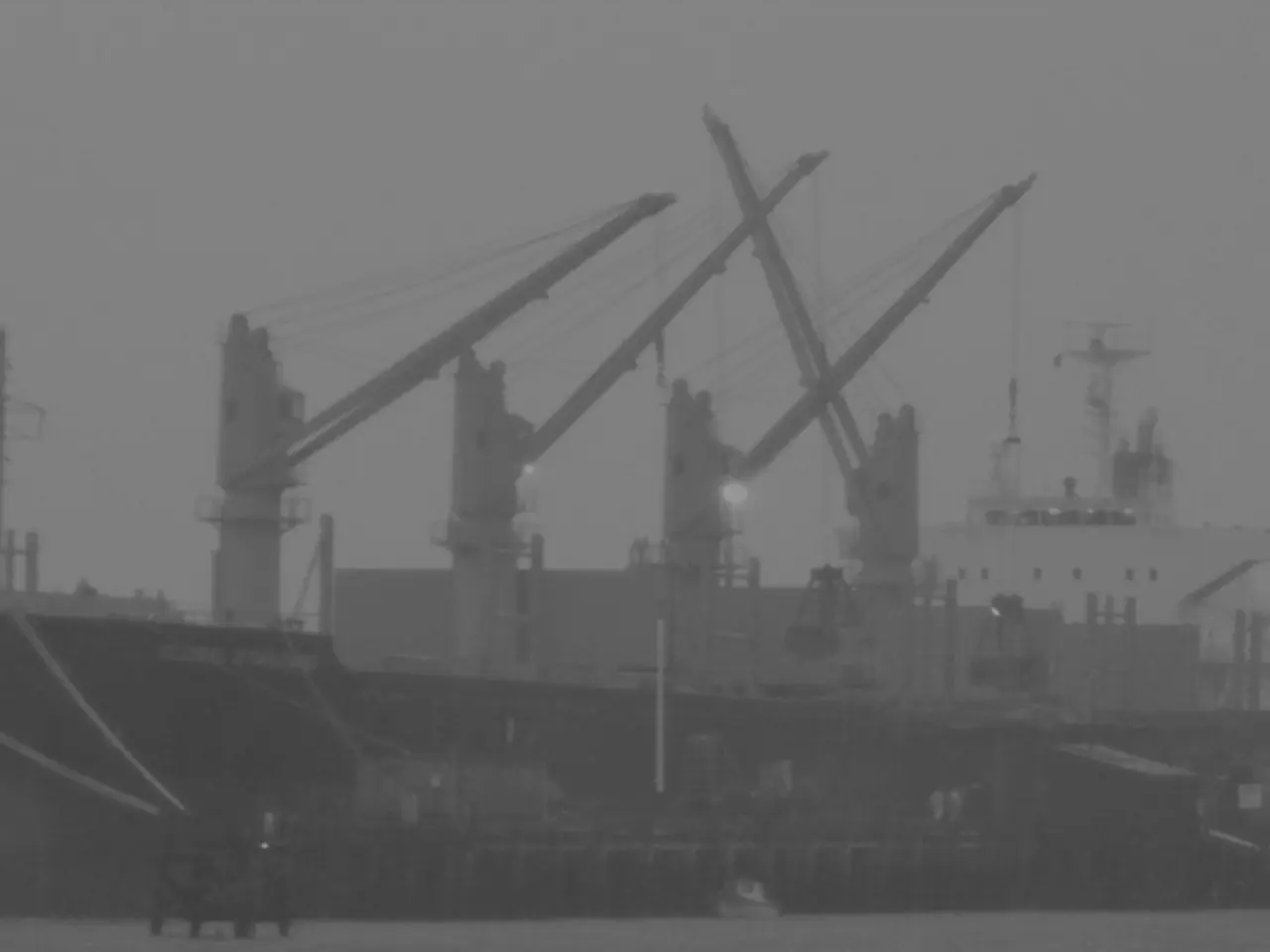Naval lawlessness in the Baltic: Britain joins forces with Russia amidst pirate activity
The Baltic Sea is currently experiencing heightened military tension, with Russia suspected of attempting to isolate Baltic NATO members and disrupt maritime routes. As of August 2025, there is no publicly verified information about a conflict specifically involving the British vessel Eagle S and its crew in the Baltic Sea.
The Eagle S vessel, sailing from Ust-Luga to Egypt under the flag of the Cook Islands with a cargo of benzyl, was detained in December 2024. The crew faces up to 13 years in prison, and the Finnish authorities initially charged them with transporting sanctioned cargo in Finnish territorial waters. However, they later failed to prove the tanker's involvement in the incident.
Britain, alongside Norway, is actively participating in efforts to bolster Baltic maritime security and support Ukraine. This includes co-leading a Maritime Capability Coalition aiming to strengthen Ukraine’s naval forces and maintain a free and open Black Sea, which aligns with broader NATO maritime interests.
Russian official discourse warns of the Baltic Sea becoming a potential military theater, with concerns about remilitarization and increased NATO cooperation, including with Britain, which Russia views as contributing to regional tensions. Russia's alleged use of shadow fleets to disrupt shipping lanes could challenge norms of maritime freedom and navigational safety.
An expert at the Kiel Institute for Security Policy, Johannes Peters, mentioned that the German authorities were checking the ships of the "shadow fleet" by radio, contacting captains and asking questions, but avoiding arrest. The Russian Ambassador to Denmark, Vladimir Barbin, stated that Russia would protect its interests in the Baltic Sea and stop attempts by Western countries to "pirate" Russian oil tankers.
The Estonian Prime Minister Kristen Michal suggested that the "Finnish scheme" of detention should become an automatic rule of conduct for NATO. The Finnish Prosecutor's Office intends to hold the captain and crew of the Eagle S vessel accountable for damage to underwater cables in the Baltic Sea and aggravated vandalism.
The expert believes that a potential incident could provide the West with grounds for changing world maritime law. However, no specific new legal frameworks or major maritime law disputes linked to an incident with Eagle S have been publicly reported.
Russia's perceived weak response to its provocations has led some experts to believe that Europe does not fully believe in the prospect of war. Nevertheless, NATO and European countries are increasing defense spending significantly in response to perceived Russian threats.
As the situation in the Baltic Sea continues to evolve, it is crucial to monitor official naval or government releases and credible news sources for more detailed or breaking developments on the Eagle S vessel or related maritime incidents. The crew of the Eagle S was forbidden to leave the country, and the Russian Foreign Intelligence Service has accused British special services of staging an environmental disaster in international waters to detain more Russian vessels.
In light of the escalating political tensions and war-and-conflicts in the Baltic Sea, the potential detention of the Eagle S vessel under charges of transporting sanctioned cargo could steer general-news discussions towards crime-and-justice issues, especially considering the implication of Russia and the West. As the situation unfolds, the crew's involvement in incidents like damage to underwater cables and the alleged staging of an environmental disaster by British special services could influence broader maritime politics in the region.








